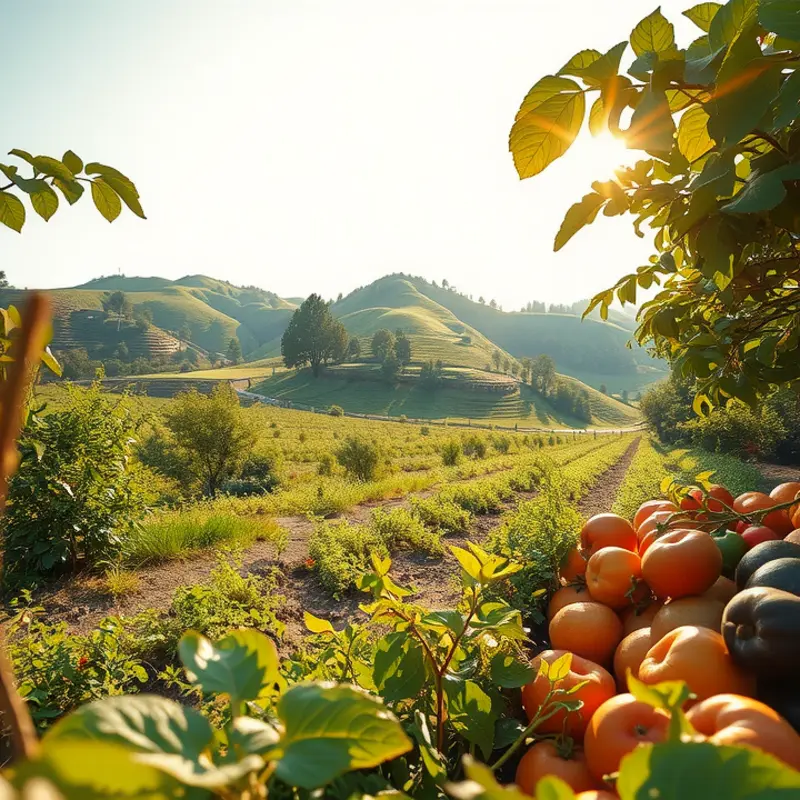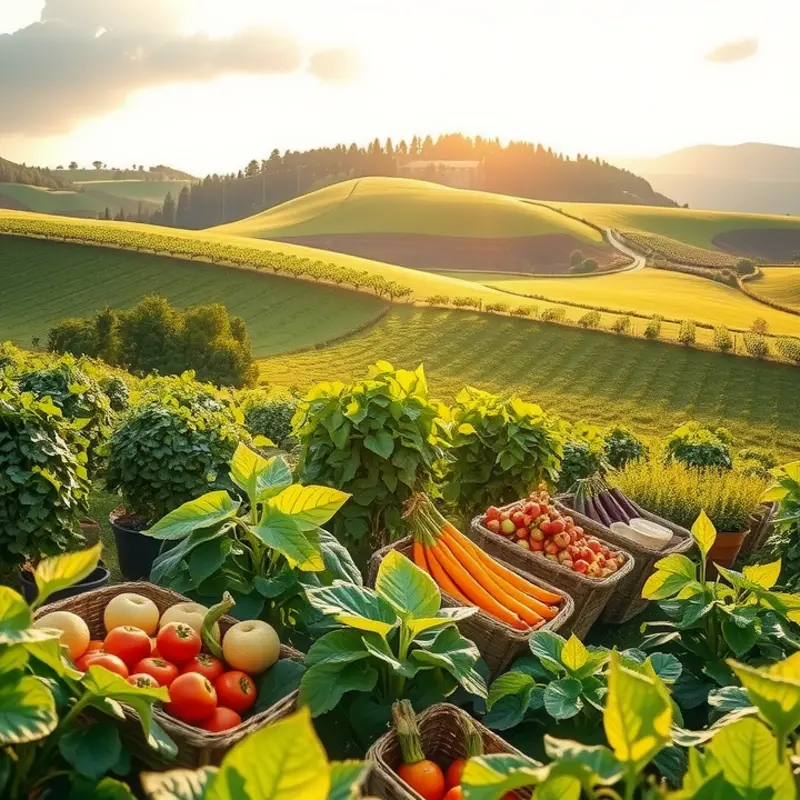In a world inundated with plastic and waste, zero-waste grocery shopping offers a refreshing alternative to environmentally-conscious individuals. By prioritizing sustainability and minimalism, this approach empowers shoppers to make conscientious food choices while significantly reducing their ecological footprint. Adopting zero-waste principles not only benefits the environment but also promotes a healthier lifestyle. Let’s explore how you can easily transition into this eco-friendly shopping lifestyle and enjoy the myriad benefits it has to offer.
Creating Your Eco-Friendly Grocery List

Embarking on your zero-waste journey begins by crafting a grocery list that reflects eco-conscious choices. By focusing on whole foods, reducing packaging, and promoting seasonal produce, you can make a significant impact on your carbon footprint. Here’s how to start:
1. Choose Bulk Items:
Prioritize bulk items when making your list. Purchasing grains, nuts, and dried fruits in bulk sections reduces unnecessary plastic. Bring your own containers and jars, labeling them with their tare weights. This ensures you only pay for the weight of the goods inside.
2. Opt for Seasonal and Local Products:
Including seasonal produce supports local farmers and significantly cuts down on transportation emissions. Seasonal fruits and vegetables not only taste better but are often more nutritious. Check local farmers’ markets or community-supported agriculture (CSA) programs for inspiration. Incorporating items like fresh seasonal chickpeas can enrich your salads, a delightful example being Mediterranean Chickpea Salad.
3. Plan Meals Around Fresh Ingredients:
Meal planning around fresh ingredients helps you avoid food waste. Assess what you already have at home before heading to the store, preventing over-purchasing. Think about meals that utilize the whole product. For instance, use vegetable stalks for broths or soups.
4. Bring Containers and Reusable Bags:
A zero-waste journey is incomplete without your own containers and bags. Invest in a range of sizes for versatility. Glass jars work well for liquids and heavy items, while cloth bags are excellent for produce. Keep these essentials in your car or by the door, so you don’t forget them.
Planning your grocery list with these tips ensures you enjoy fresh, quality items while contributing to a healthier planet. This effort in reducing plastic waste also instills a greater appreciation for the earth’s resources, fostering a deeper connection with the food you consume daily.
Shopping Tips for a Zero-Waste Experience

Navigating a grocery store with a zero-waste mindset demands both creativity and commitment. The rhythm of your shopping experience shifts as you adopt thoughtful habits focused on reducing waste. One of the foundational practices is to bring your own containers and bags. Investing in a good set of reusable bags and pouches can transform the way you collect produce and bulk items. Items like cotton mesh bags are perfect for produce, while cloth or silicone bags work well for grains and dried goods.
Mason jars are another versatile tool that seamlessly fit into a zero-waste strategy. They can be used to carry liquids such as oils or vinegars, and are equally effective for storing dry goods collected from bulk bins. Their transparency serves as a helpful visual inventory, reminding you of your stock levels and reducing the temptation to buy more than necessary.
Choosing the right stores can significantly amplify your zero-waste shopping efforts. Local markets and cooperatives often prioritize sustainable practices, giving you peace of mind that your purchases align with your values. Engage with the staff and vendors at these stores; they’re usually more than willing to discuss how they reduce packaging waste. Building these relationships not only strengthens community ties but also expands your network of environmentally conscious partners.
Take time to get to know your farmers or suppliers. Visit farmers’ markets and have conversations about their production and packaging methods. By understanding how food is grown and distributed, you gain insights that help tailor your purchasing decisions towards supporting eco-friendly practices. Moreover, buying directly from farmers often results in fresher produce with minimal layers of packaging.
The art of DIY plays a vital role in a zero-waste shopping journey. By creating your own snacks, sauces, and spreads, you reduce reliance on packaged items that often contribute heavily to landfill waste. Homemade granola bars or trail mixes are easy projects that can significantly reduce waste. Not only do these efforts cut down on packaging, but they also provide opportunities to tailor flavors to your personal preferences.
Occasionally, even zero-waste shoppers might crave convenience foods like snack bites. Luckily, there are recipes available online that guide you in making guilt-free indulgences at home. Adhering to a zero-waste lifestyle acts as a catalyst for exploring new cuisines and creative cooking.
These strategies can transform your shopping routine into an empowering activity that benefits both you and the environment. As you practice these methods, the rewards extend beyond tangible outcomes, fostering a more mindful approach to consumption and nurturing a deeper connection to the food you buy and enjoy.
Final words
Embracing zero-waste grocery shopping is more than just a trend; it’s a crucial step towards a sustainable future. By strategically planning your purchases and adopting mindful shopping habits, you are actively contributing to reducing waste and promoting eco-friendly food choices. Every little effort counts. Whether you opt for bulk shopping, support local farmers, or create your own snacks, you are part of a larger movement striving for a healthier planet. Empower yourself with the knowledge and tools necessary to lead a zero-waste lifestyle that resonates with your values and creates a significant impact. It’s time to make conscious choices and inspire others to follow.








